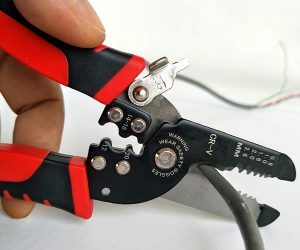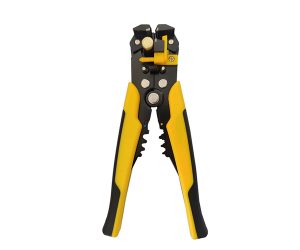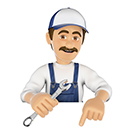When it comes to high-quality hand tools, few countries stand out like Germany. Renowned for their engineering precision, durability, and long-lasting performance, German hand tools have become synonymous with excellence in the industry. In this article, we’ll dive deep into the leading German hand tool brands, the features that make them stand out, and why they set the bar for quality worldwide. Ready for the good part? Let’s explore why German craftsmanship is second to none.
1. What are the leading German hand tool brands?
Germany is home to some of the most respected names in the hand tool industry. Companies like Bosch, Wera, and Wiha have a long history of producing tools that professionals trust and rely on. What sets these brands apart from the competition? Let’s break it down.
Bosch is perhaps the most well-known German hand tool brand, offering a wide variety of tools for both professionals and DIY enthusiasts. From drills and screwdrivers to saws and hammers, Bosch tools are built to last, with a strong emphasis on innovation and user-friendly design. Their tools are designed to withstand tough work conditions, and their reputation for reliability is unmatched.
Wera, on the other hand, is recognized for its precision screwdrivers and wrench sets. Known for their unique design and exceptional functionality, Wera tools are often favored by mechanics and electricians. What’s the real story? Their color-coded screwdriver sets and innovative ratchet wrenches make them stand out in a crowded market.
Wiha, a family-owned company, has been producing high-quality hand tools for over 80 years. Wiha’s tools are designed for comfort, performance, and precision. From pliers to screwdrivers, their tools are crafted with attention to detail, ensuring that each product delivers optimal results. What’s the catch? Wiha tools are often more affordable compared to other premium German brands, making them a popular choice for professionals on a budget.
Let’s take a closer look at these top German brands and what they bring to the table.
| Brand | Product Range | Key Features | Target Audience |
|---|---|---|---|
| Bosch | Drills, saws, hammers | Durable, innovative, ergonomic | DIYers, professionals |
| Wera | Screwdrivers, wrenches | Precision, color-coded, reliable | Mechanics, electricians |
| Wiha | Screwdrivers, pliers | Comfortable, affordable, precise | Professionals on budget |
2. What makes German hand tools stand out in the industry?
There’s no denying it—German hand tools are the gold standard in the industry. So, what exactly makes them so special? It all boils down to a combination of factors: quality materials, precision engineering, and a commitment to innovation.
Let’s start with the materials. German manufacturers are known for using high-quality steel and alloys that offer exceptional strength, corrosion resistance, and long-lasting performance. Whether it’s the hardened steel used in Bosch drills or the high-quality chrome vanadium used in Wera wrenches, these materials ensure that the tools are tough enough to withstand even the most challenging tasks.
But here’s the kicker—precision engineering. German hand tools are renowned for their exacting standards and attention to detail. Each tool is manufactured with a focus on ergonomics, making them easy to handle and use. This precision ensures that every tool performs as intended, minimizing user fatigue and maximizing efficiency. This is where it gets interesting—German brands also invest heavily in research and development, constantly pushing the boundaries of innovation to meet the evolving needs of their customers.
Finally, German tools are built to last. These tools aren’t just about performance; they are also about longevity. With proper care, German hand tools can last for decades, making them a solid investment for any professional.
| Factor | Details |
|---|---|
| Materials | High-quality steel, corrosion resistance |
| Engineering | Precision, ergonomic design, user-friendly |
| Innovation | Research & development, evolving with customer needs |
| Longevity | Durable, built to last decades |
3. How do German hand tools compare to other brands?
When you compare German hand tools to their counterparts from other regions, there’s a noticeable difference in quality and performance. But what’s the real story here? German tools consistently outperform tools from other countries, thanks to their meticulous manufacturing processes and rigorous quality control.
While Chinese-made tools are often more affordable, they don’t always match the same level of durability and precision. German manufacturers focus on creating tools that provide exceptional value over the long term. What’s the deal with American brands? Many US-made tools are known for their rugged design and performance, but they often lack the refined engineering that German brands offer.
This isn’t to say that other brands don’t have their place—each market has tools suited to different needs. But German hand tools, particularly from brands like Bosch, Wera, and Wiha, are often seen as the top choice when it comes to professional-grade, long-lasting tools.
| Brand Origin | Strengths | Weaknesses |
|---|---|---|
| German | Precision, durability, innovation | Higher cost |
| Chinese | Affordable, mass-produced | Lower durability, less precise |
| American | Rugged, high performance | Less refined engineering, heavier |
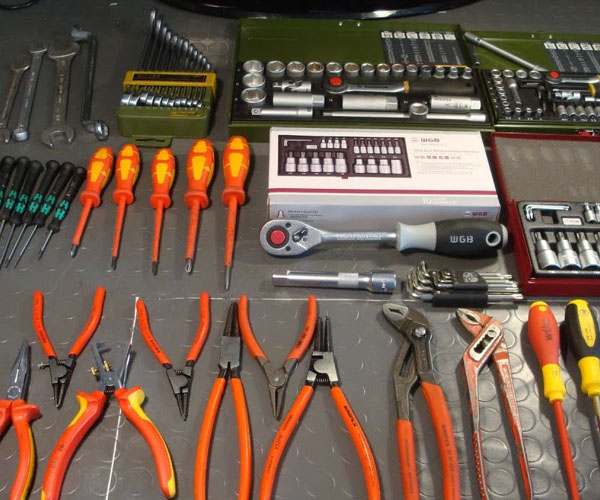
4. What are the most popular German hand tool brands?
Let’s focus on the big players. Bosch, Wera, and Wiha top the list, but let’s take a deeper dive into what makes these brands the go-to for professionals across the globe.
Bosch is synonymous with reliability and versatility. Their tools are used in a wide range of industries, from home improvement to industrial applications. Bosch is the brand that professionals turn to when they need a tool that works—every time.
Wera is all about precision and cutting-edge design. Their screwdrivers and wrenches are second to none, with ergonomic handles and unique features that make them stand out. Wera’s tools are the choice for professionals who demand precision and efficiency.
Wiha, often more affordable than Bosch or Wera, is still a force to be reckoned with. Their tools are designed with the same level of quality but come at a price point that’s more accessible for those on a budget. Wiha is the choice for professionals who need high-quality tools without breaking the bank.
| Brand | Product Range | Notable Features |
|---|---|---|
| Bosch | Drills, hammers, saws | Versatile, reliable, ergonomic |
| Wera | Screwdrivers, wrenches | Precision, ergonomic, unique design |
| Wiha | Pliers, screwdrivers | Affordable, quality, durable |
5. What are the key features of German hand tools?
German hand tools are known for several key features that set them apart from the competition. These features include precision engineering, ergonomic designs, and long-lasting durability.
First off, precision is a hallmark of German tool manufacturing. Whether it’s a wrench from Wera or a drill from Bosch, German tools are engineered to exact specifications, ensuring that each tool is perfectly balanced and performs with high accuracy. This precision reduces the chance of errors and improves overall efficiency.
But here’s the kicker—ergonomics. German tool manufacturers put a significant amount of effort into designing tools that are comfortable to use. Ergonomic handles, balanced weight distribution, and grips that reduce hand fatigue are all standard features on most German hand tools. This ensures that users can work for longer periods without experiencing discomfort.
Finally, durability is a key selling point. German hand tools are built to last, even under extreme conditions. The materials used, combined with the precision engineering, ensure that these tools will withstand years of use.
| Feature | Importance | Examples |
|---|---|---|
| Precision | Ensures accuracy and optimal performance | Bosch drills, Wera wrenches |
| Ergonomics | Reduces fatigue, improves comfort during use | Wiha screwdrivers, Bosch hammers |
| Durability | Long-lasting, reliable even in harsh conditions | Wera tools, Bosch saws |
6. How do German hand tools maintain their quality standards?
German hand tools maintain their top-tier quality standards through a combination of strict manufacturing processes, regular testing, and continuous improvement.
The manufacturing process for German hand tools is rigorous. Only the highest-quality materials are used, and each tool undergoes a thorough inspection before leaving the factory. This ensures that every tool meets the brand’s high standards for precision and durability.
What’s the real story here? These tools also undergo extensive testing. Whether it’s stress testing for wrenches or precision testing for screwdrivers, German brands like Bosch, Wera, and Wiha leave nothing to chance. They want to ensure that their tools perform at their best, no matter what.
| Process | Description | Brands Involved |
|---|---|---|
| Manufacturing | High-quality materials, precision engineering | Bosch, Wera, Wiha |
| Testing | Rigorous testing for durability and performance | Bosch, Wera, Wiha |
| Continuous Improvement | Focus on R\&D and innovation | Bosch, Wera, Wiha |
7. What types of tools are produced by German brands?
German tool manufacturers produce a wide array of hand tools, each designed for specific applications. Whether you’re in the automotive industry, construction, or home improvement, there’s a German-made tool for almost every task. But what’s the real story here? These tools aren’t just functional—they’re also designed to improve efficiency, reduce fatigue, and increase safety for professionals.
In the automotive repair sector, German brands like Bosch and Wera produce tools that are built to handle the demanding work of mechanics. From ratchets and wrenches to diagnostic tools, these brands have developed specialized equipment that allows technicians to work faster and more precisely. For example, Bosch’s automotive diagnostic tools help technicians identify issues quickly, which speeds up repair times and boosts productivity.
In construction and woodworking, German manufacturers like Wiha and Gedore offer a broad range of tools. Wiha’s pliers and screwdrivers are essential for electricians and contractors, while Gedore produces high-quality hammers and chisels used by carpenters and builders. These tools are designed for both precision and durability, ensuring that professionals can complete their tasks with ease and accuracy.
So, what about more specialized tools? German manufacturers also produce a variety of niche tools, such as torque wrenches, pipe benders, and cable cutters, used in industries like plumbing and electrical work. These tools are meticulously engineered to perform under high pressure and in challenging conditions, making them a trusted choice for professionals in those fields.
| Tool Type | Example Brands | Common Uses |
|---|---|---|
| Automotive Tools | Bosch, Wera | Diagnostic tools, ratchets, wrenches |
| Construction Tools | Wiha, Gedore | Hammers, pliers, chisels, screwdrivers |
| Specialized Tools | Wera, Bosch, Gedore | Torque wrenches, pipe benders, cutters |
8. How have German hand tools adapted to changing market needs?
The world of hand tools is constantly evolving, and German manufacturers have been quick to adapt to changing market needs. What’s the deal with this evolution? It’s about keeping pace with technology, sustainability, and user demands.
One significant change is the increasing focus on sustainability. Many German tool brands are shifting toward eco-friendly production methods, using recycled materials wherever possible and reducing their environmental footprint. For example, Wiha’s use of recycled steel in some of their products showcases their commitment to sustainability without compromising on quality. These green practices are in line with the growing demand for environmentally responsible products in today’s market.
Another way German brands have adapted is through the integration of digital technology. For instance, Bosch offers smart tools that can be connected to mobile apps, allowing users to track performance, measure efficiency, and even diagnose problems. These high-tech solutions provide users with greater control over their work and help increase productivity.
What’s the real story here? German manufacturers are also paying more attention to ergonomics. Tools that were once heavy and difficult to handle have been redesigned to make them more user-friendly. By improving comfort and reducing fatigue, these tools allow professionals to work longer and with less strain, which increases both productivity and safety.
| Adaptation | Details | Example Brands |
|---|---|---|
| Sustainability | Use of recycled materials, eco-friendly methods | Wiha, Bosch |
| Digital Integration | Smart tools and app connectivity | Bosch |
| Ergonomics | Redesigned tools for better comfort and use | Wera, Wiha |
9. How do German hand tools impact the global market?
German hand tools have a significant presence in the global market, and their impact is far-reaching. Let’s take a closer look at why these tools are so widely sought after.
German-made tools are recognized around the world for their quality and performance. Professionals in various industries—from automotive repair to construction—trust German tools to get the job done. The demand for these tools is not limited to Europe; countries across North America, Asia, and Africa rely on German-made tools for both commercial and industrial use. Bosch, Wera, and Wiha are just a few examples of German brands that have successfully expanded into international markets.
So, why is the global market so receptive to these tools? It’s not just about their superior quality—German tools also benefit from a long-standing reputation for innovation and engineering excellence. As industries worldwide evolve, the demand for precise, durable, and efficient tools continues to rise. German brands are able to meet these needs with products that combine advanced technology, high-quality materials, and exceptional craftsmanship.
The global expansion of German brands has also been helped by their strong partnerships with distributors and retailers worldwide. These partnerships ensure that German-made tools are available to customers all over the world, from local hardware stores to large-scale industrial suppliers.
| Region | Impact of German Tools | Key Brands |
|---|---|---|
| North America | High demand in automotive and construction sectors | Bosch, Wera, Wiha |
| Europe | Stronghold in professional and DIY markets | Bosch, Gedore, Wera |
| Asia | Growing demand for precision tools | Bosch, Wera |
10. Are German hand tools worth the investment?
If you’re in the market for high-quality hand tools, you might be wondering whether German brands are worth the higher price tag. The short answer? Yes. But let’s dive into why.
First off, German hand tools are designed to last. Many tools from brands like Bosch, Wera, and Wiha come with lifetime warranties, which is a strong indication of their durability. Professionals who rely on their tools every day understand that investing in high-quality products saves them money in the long run. A German-made wrench, for example, can last for years, with minimal wear and tear.
But here’s the kicker—German tools aren’t just durable; they’re also highly efficient. Their precision engineering ensures that each tool performs at its best, reducing the time and effort required to complete tasks. Whether it’s a drill from Bosch or a screwdriver from Wiha, these tools make work easier and more efficient.
Finally, German tools have a strong resale value. If you ever need to sell or trade in your tools, you can expect to get a fair price for well-maintained German products. This makes them a smart investment for both professionals and DIY enthusiasts.
| Tool Brand | Durability Rating | Efficiency Rating | Resale Value |
|---|---|---|---|
| Bosch | 9/10 | 9/10 | High |
| Wera | 8/10 | 9/10 | Medium |
| Wiha | 8/10 | 8/10 | Medium |
11. What is the price range of German hand tools?
German hand tools are often seen as premium products, but just how much do they cost? The price range for these tools can vary depending on the brand, type, and quality, but they generally fall into the mid-to-high price range. Let’s break it down.
For entry-level tools from brands like Wiha, you can expect to pay anywhere from $10 to $30 for basic screwdrivers, pliers, or wrenches. These tools offer solid performance at an affordable price, making them a great option for those who need reliable tools on a budget.
Mid-range tools, like those from Wera, typically range from $30 to $100. These tools offer higher performance, with features like ergonomic grips, enhanced durability, and precision engineering. Wera’s screwdrivers and ratchet sets fall into this category, offering a good balance between cost and quality.
At the high end, tools from Bosch and Gedore can cost anywhere from $100 to $500 or more. These tools are designed for professionals who require the best performance and longevity. Bosch’s cordless drills, for example, can range from $150 to $300, while Gedore’s specialty tools and sets can cost upwards of $500.
| Brand | Price Range | Tool Examples |
|---|---|---|
| Wiha | $10-$30 | Screwdrivers, pliers, wrenches |
| Wera | $30-$100 | Ratchets, screwdrivers, wrench sets |
| Bosch | $100-$500+ | Cordless drills, power tools |
| Gedore | $100-$500+ | Specialty tools, high-performance sets |
12. How can you find the best deals on German hand tools?
Finding the best deals on German hand tools requires some research and patience. Ready for the good part? Here are a few tips to help you save money while still getting high-quality tools.
First, consider buying directly from the manufacturer’s website or an authorized dealer. Many German tool brands offer promotions and discounts, especially during sales events or holiday periods. You can often find bundle deals or discounted rates on discontinued models.
Another great option is to explore online marketplaces like Amazon or eBay. Just be sure to check the seller’s reputation and return policy before making a purchase. Online retailers often offer competitive pricing on German hand tools, and you may be able to find used or refurbished tools at a lower cost.
Finally, look for local retailers that offer deals or discounts on German tools. Many stores run seasonal sales or clearance events, and it’s worth keeping an eye out for these opportunities to score a great deal.
| Option | Price Range | Pros |
|---|---|---|
| Manufacturer Website | $10-$500+ | Promotions, warranty, authenticity |
| Online Marketplaces | $10-$500+ | Competitive pricing, variety |
| Local Retailers | $10-$500+ | Seasonal sales, in-person shopping |
13. What are the most common complaints about German hand tools?
Despite their reputation for quality, German hand tools are not without their drawbacks. Let’s take a closer look at some of the most common complaints.
One common complaint is the price. German-made tools are often more expensive than their Chinese or American counterparts. While the higher cost is justified by the quality and longevity of the tools, it can be a barrier for some customers, particularly those on a budget.
Another issue some users report is that certain tools can be too heavy or bulky, especially when it comes to power tools like drills and saws. While this is usually a result of the tools being built to withstand heavy-duty use, it can make them uncomfortable for extended use.
Finally, there are occasional complaints about tool availability. Some customers find it difficult to find specific models or brands in their local stores, particularly in regions where German-made tools are less common.
| Complaint | Impact | Solutions |
|---|---|---|
| Price | High cost for entry-level products | Look for sales, refurbished tools |
| Weight | Some tools are heavy and bulky | Check for ergonomic models |
| Availability | Limited availability in some regions | Purchase online, look for dealers |
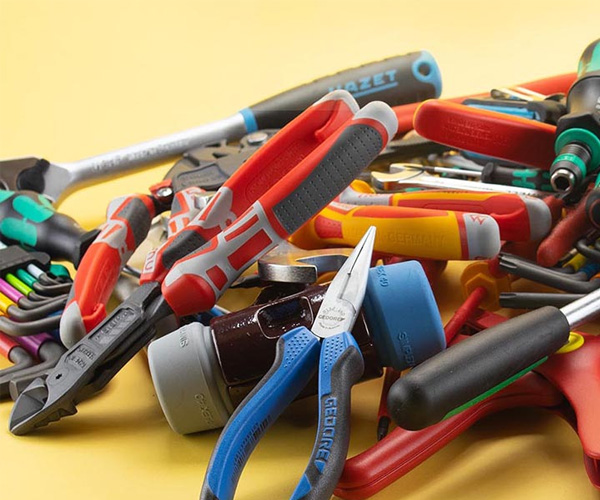
14. How do German hand tools contribute to sustainability?
Sustainability is becoming increasingly important in today’s manufacturing processes, and German tool manufacturers are leading the way. But how exactly are they contributing to sustainability?
German brands like Wiha and Bosch are incorporating more recycled materials into their production processes. For example, Wiha uses recycled steel in many of their tools, reducing the environmental impact of manufacturing. Bosch has also invested in energy-efficient production methods, significantly reducing the carbon footprint of their tools.
What’s the kicker here? German manufacturers also prioritize durability, which indirectly promotes sustainability. High-quality tools last longer, reducing the need for replacements and ultimately saving resources in the long term.
| Company | Sustainable Practices | Examples |
|---|---|---|
| Wiha | Use of recycled materials, eco-friendly design | Recycled steel in tools |
| Bosch | Energy-efficient production, waste reduction | Eco-friendly production methods |
| Wera | Focus on longevity, reducing waste through durability | Long-lasting tool designs |
15. What does the future hold for German hand tool brands?
The future for German hand tool brands looks bright, with innovations and advancements on the horizon. What’s the real story here? These brands are already embracing emerging technologies and trends to stay ahead of the curve.
For example, the integration of smart technology into tools is expected to increase. Bosch has already introduced tools with Bluetooth capabilities, allowing users to track performance and improve efficiency. This trend is likely to continue, with more tools becoming connected in the future.
Another exciting development is the continued push towards sustainable practices. German brands will likely expand their use of eco-friendly materials and energy-efficient production methods, aligning with global efforts to reduce environmental impact.
Finally, automation and robotics are expected to play a bigger role in manufacturing. As these technologies become more widespread, German brands will be able to produce tools even more efficiently, with increased precision and reduced costs.
| Trend | Impact | Key Brands |
|---|---|---|
| Smart Technology | Improved efficiency, better user control | Bosch, Wera |
| Sustainability | Eco-friendly production, reduced environmental impact | Wiha, Bosch |
| Automation | Faster, more precise manufacturing | Bosch, Wera |
FAQ
Q1: What are German hand tools known for?
German hand tools are known for their precision engineering, durability, and high-quality craftsmanship, making them a top choice for professionals in various industries.
Q2: How do German hand tools maintain such high standards?
German hand tools maintain their high standards through strict quality control measures, skilled craftsmanship, and the use of premium materials in their production.
Q3: Are German hand tools worth the price?
Yes, German hand tools are generally considered a worthwhile investment due to their long-lasting durability, high performance, and precision, which save users money over time.
Q4: What are some of the top German hand tool brands?
Some of the top German hand tool brands include Bosch, Wera, Wiha, and Gedore, known for their diverse range of high-quality tools for various industries.
Q5: Can I find affordable German hand tools?
Yes, while German hand tools tend to be on the pricier side, there are affordable options available, especially if you consider buying tools directly from manufacturers or exploring second-hand options.
Tips:Many German tool brands indeed have some products made in China, especially when it comes to production costs and efficiency. By setting up production bases in China, German brands can benefit from lower labor costs and high production efficiency. This allows them to offer more competitive prices while maintaining product quality and reliability.
At the same time, these brands often retain some production in Germany, particularly for high-end products or tools with specialized needs. Production in Germany usually focuses on precision, innovation, and quality control, which helps enhance the brand’s value and image.
This “mixed manufacturing” model has been very successful for many German tool brands, as it allows them to maintain global competitiveness while preserving their high-end positioning in the consumer’s mind. What do you think of this model? In your business, have you also considered similar partnerships or manufacturing arrangements?


